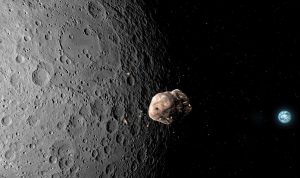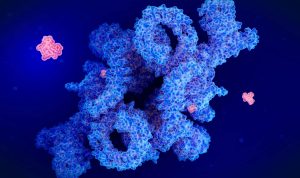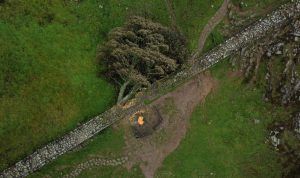Attacks on Iran's nuclear facilities have already triggered at least one internal radiation leak, but should we be concerned that Israeli bombing could cause a larger nuclear accident?
Iran’s Arak heavy water nuclear facility was damaged by Israeli bombingShutterstock Editorial
Iran’s Arak heavy water nuclear facility was damaged by Israeli bombing
Israeli strikes on Iranian nuclear sites are raising fears of a harmful radioactive accident, including from the director general of the International Atomic Energy Agency (IAEA) – but experts have toldNew Scientistthat the risks are minimal, despite reports of radiological and chemical contamination inside one nuclear enrichment facility.
Peter Bryantat the University of Liverpool in the UK says that the words “nuclear” and “radiation” create understandable fear, but that there have been no external leaks so far despite extensive bombing.
This is how to avoid annihilating ourselves in a nuclear warWe have been lucky to dodge nuclear Armageddon so far, but we can't keep trusting to fortune. If we don't want to wipe ourselves out, here's what we need do next, says Mark Lynas
This is how to avoid annihilating ourselves in a nuclear war
We have been lucky to dodge nuclear Armageddon so far, but we can't keep trusting to fortune. If we don't want to wipe ourselves out, here's what we need do next, says Mark Lynas
Iran has a nuclear power programme that dates back to the 1950s and it has also, at times, had a nuclear weapons development programme. The country pledged to submit to inspections by the IAEA to demonstrate that its power facilities aren’t being used to build weapons, but earlier this month the agency released a report accusing Iran offailing to meet its obligations under non-proliferation rules. In essence, traces of uranium were found at plants that suggested a covert nuclear weapons programme continued.
Israel began strikes just days after the report’s release, against Iranian facilities used for enriching uranium. This element naturally occurs as a mix of three isotopes, but the enriched version has a higher proportion of one of them, uranium-235, which is useful in both nuclear reactors to generate electricity and for nuclear weapons. Because of this potential dual use, Iran has at various times pledged to restrict its enrichment activities and is a signatory to theTreaty on the Non-Proliferation of Nuclear Weapons, which means it shouldn’t attempt to create nuclear weapons.
Philipp Bleekat the Middlebury Institute of International Studies in California says that, according to the IAEA’s report,Iran already has over400 kilograms of 60 per cent enriched uranium– which is sufficient in its current form for multiple crude nuclear weapons – and that Israel’s intelligence agencies believe there to be more undeclared to the IAEA. Even 60 per cent uranium is far more pure than that needed for power plant fuel, hinting that Iran does indeed have ambitions to become a nuclear power.
The latest science news delivered to your inbox, every day.
Read moreNuclear fusion fuel could be made greener with new chemical process
Nuclear fusion fuel could be made greener with new chemical process
Iran has two enrichment sites, Fordow Fuel Enrichment Plant (FFEP) and theNatanz Nuclear Facility. Israel has bombed Natanz, leading to internal radiation leaks at the plant,according to the IAEA, but this appears to have been contained with no signs of external leaks.
Fordow, meanwhile, remains in operation because it lies so far underground thatonly powerful US bombs are likely to destroy it. US president Donald Trump is currentlyweighing up whether to lend such supportto Israel.
The Arak heavy water reactorhas also been bombed, but this had never been commissioned and contained no radioactive material. Had it been completed, it might eventually have been able to convert uranium into plutonium, another material that can be used to make nuclear weapons. TheIsfahan Nuclear Technology Centrehas also been attacked, as have several missile sites that could conceivably launch nuclear weapons once they had been created or launch further conventional weapons attacks on Israel.
Read moreRisk of nuclear disaster is minimal as Russian forces reach Chernobyl
Risk of nuclear disaster is minimal as Russian forces reach Chernobyl
Bleek points out that fresh uranium, regardless of enrichment level, poses a “very modest” health hazard. “You’d have to get a lot in your body, like uranium miners did when they got uranium dust into their lungs, for it to have a meaningful impact,” he says.
Because of this, an enrichment plant being bombed represents relatively little danger outside the immediate area, says Bryant. And because Iran has built them deep underground – to make destroying them harder – any fallout would be even more contained. “You can hold uranium fuel in your bare hand and it won’t do anything,” says Bryant. “Unless you were to physically eat that uranium, you’re not going to have an issue.”
If a working nuclear reactor was bombed, however – particularly if its fuel had been in use for months – then there will have been a build-up of “nasty fission byproducts” – much more dangerous radioactive isotopes. If these escaped a plant, that could create a Chernobyl or Fukushima-type scenario, warns Bleek.
Bryant says that this kind of leak is virtually impossible though, because reactor designs have advanced to the point that they can contain radiation even under heavy bombardment. Plus, power plants aren’t a vital part of a nuclear weapons programme and are unlikely to be targeted by Israel, he says. Iran’s sole operating nuclear power plant, in Bushehr,has not yet been targeted.
Read moreShould Ukraine capture a Russian nuclear power plant?
Should Ukraine capture a Russian nuclear power plant?
Despite scientific experts tellingNew Scientistthat the attacks pose minimal risk, IAEA director general Rafael Grossi said in a press conference earlier this week that they do indeed risk harm – thesecond such warning he has made in recent years, following Russia’s seizure of nuclear plants in Ukraine after its invasion of the country.
“I have repeatedly stated that nuclear facilities must never be attacked, regardless of the context or circumstances, as it could harm both people and the environment,” he said.
Receive a weekly dose of discovery in your inbox!
We'll also keep you up to date withNew Scientistevents and special offers.












